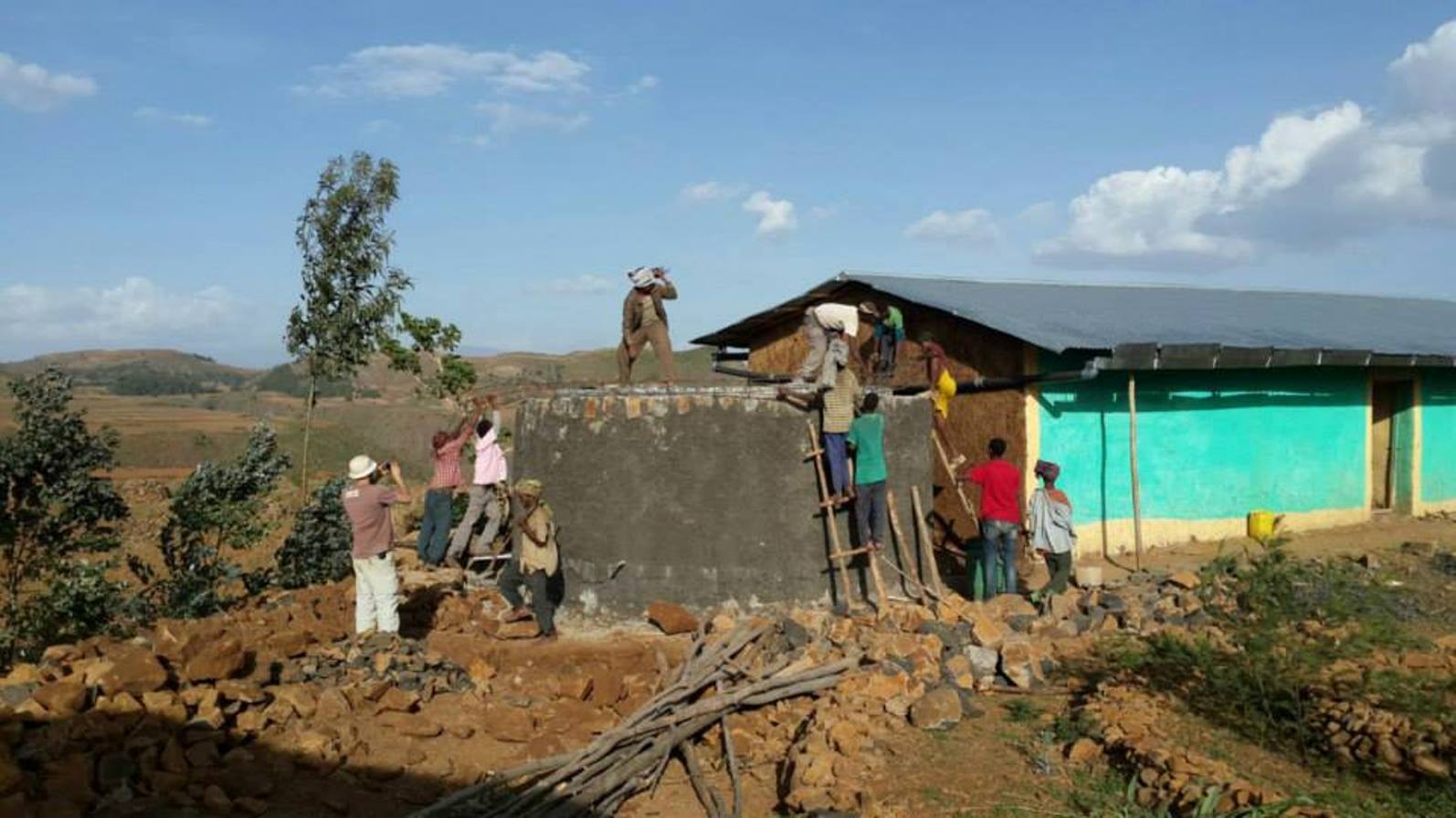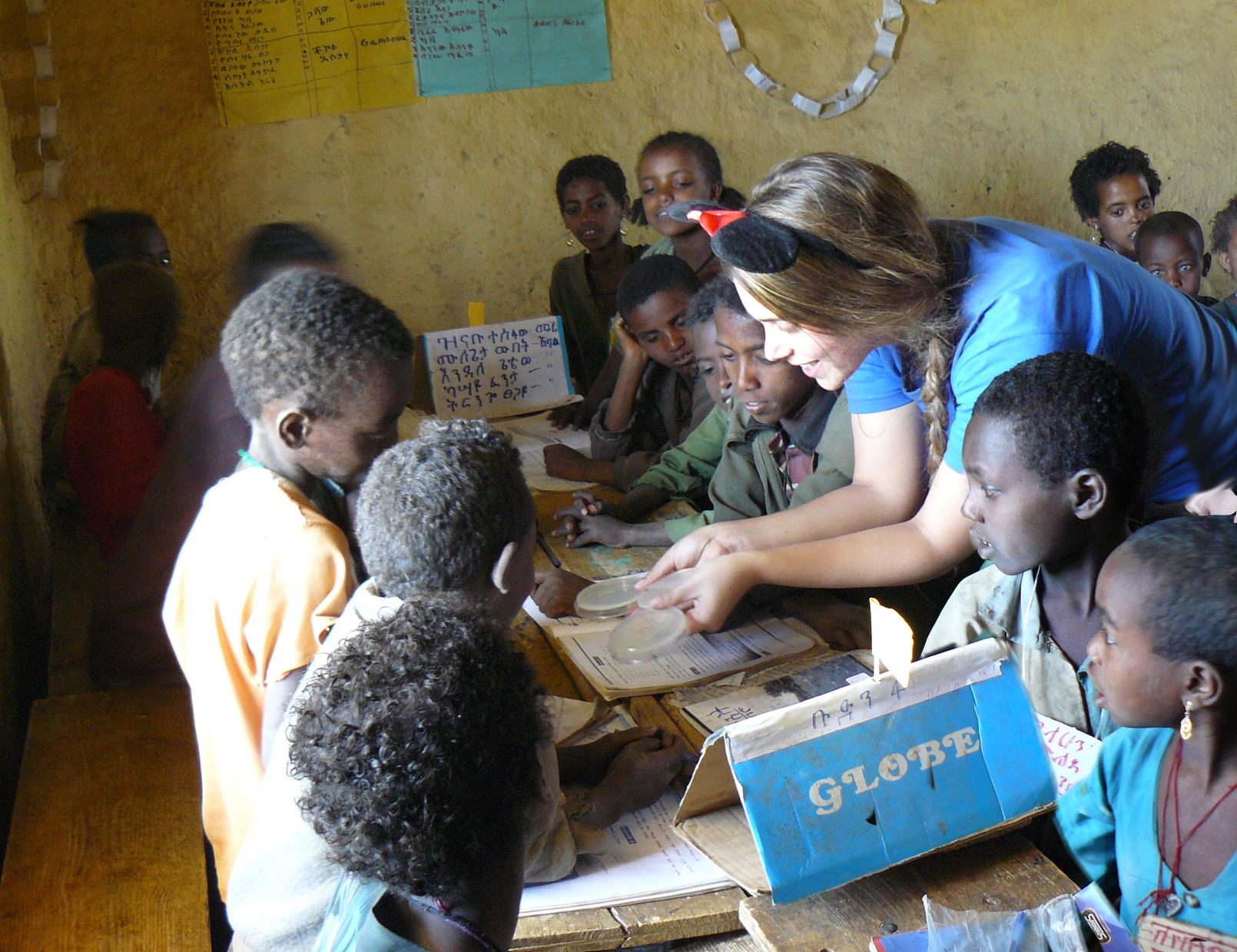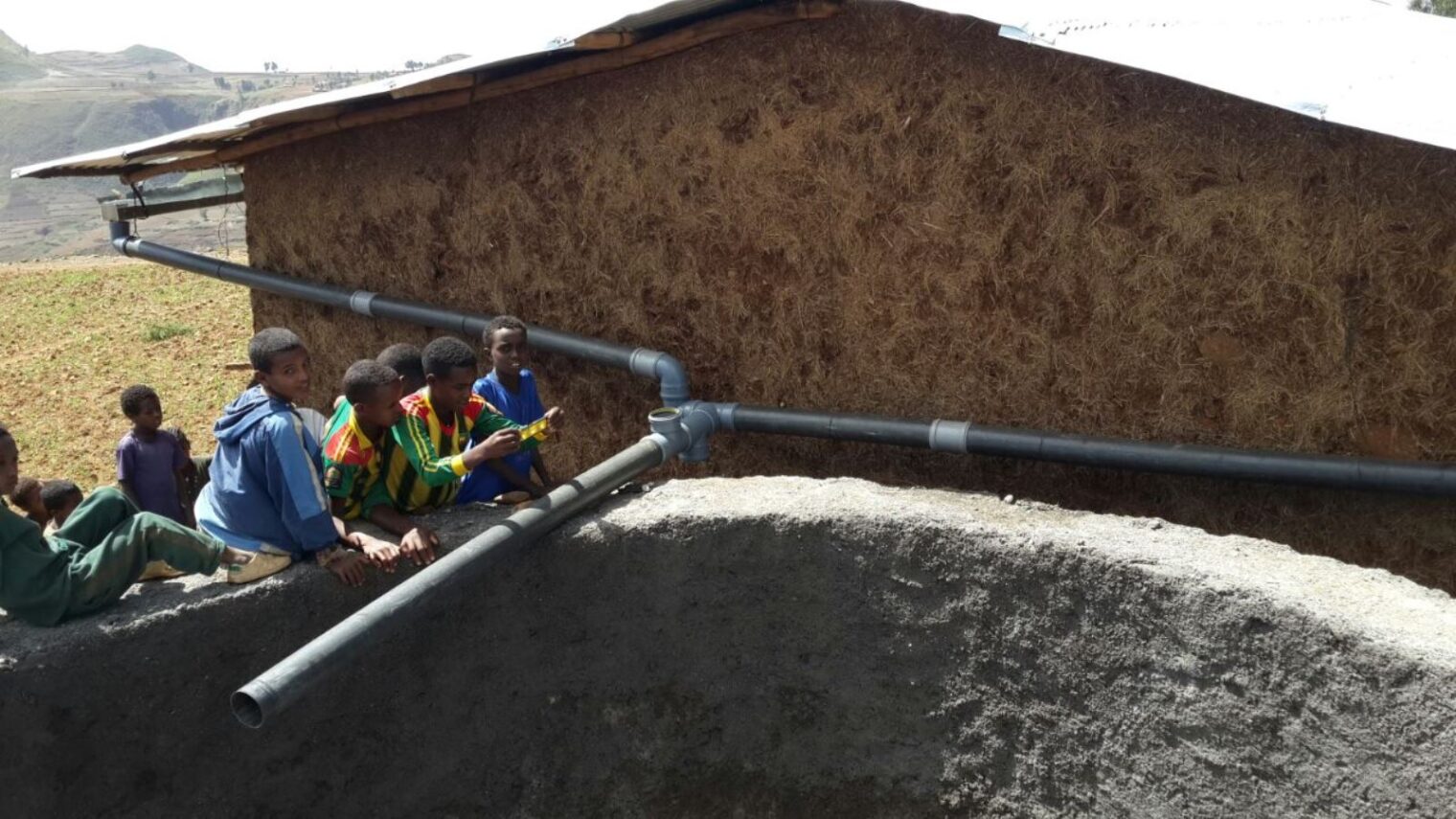Volunteers from the Engineers without Borders (EwB) chapter at the Technion-Israel Institute of Technology joined up with a rural community in northern Ethiopia to design and build a safe drinking-water system for their school.
The system collects rainwater from the rooftop during the rainy season and stores it in a stone reservoir constructed as part of the project. The water is cleaned and treated before reaching the school’s holding tank.
As a result, more than 600 students finally have access to safe drinking and washing water during the school day, all year long. The visiting Israelis formed an engineering club for older children at the school and trained them to be responsible for the maintenance of the system and treating the water.

The cooperative project in Meskele Cristos began two years ago with a request from Yossi and Sheila Shalhevet, volunteers with Israel’s Save a Child’s Heart (SACH) charity.
A little boy from Meskele Cristos was brought to Israel in 2012 for lifesaving heart surgery through SACH. The Shalhevets “adopted” the boy and his family, and when they visited the village they saw there was no running water in the local school; the entire village depends on a few small springs and one hand pump. So the Shalhevets asked EwB-Technion for help.
In May 2013, representatives from EwB-Technion visited Meskele Cristos for an initial assessment.
“We saw that the school does not have a reliable drinking-water source,” said Nimrod Polonsky, one of the students. “To be able to drink water and wash their hands during the school day, students needed to walk to a water source far away and carry back the water in jerry cans, a practice that was rarely done. So we set ourselves a goal to establish a safe drinking-water system at the school for the benefit of the students.”

It took nearly two years of long journeys and hard work on the part of 15 Technion students to reach that goal, working in cooperation with the village community and a local NGO called Save Your Holy Land Association. Financing came from donations made to EwB-Technion and World Families Australia (WFA), an NGO supporting this village school for the past several years.
“The solution for the water system in Ethiopia was developed in cooperation with the local community. At the end of the day, they will be the ones who will need to know how to operate it,” said Yael Meyouhas, who completed her undergraduate degree in civil and environmental engineering and now runs the campus Center for Global Engineering through which EwB-Technion operates.
“I hoped to engage in activities focused on bridging between the environment, community and education, and thankfully that’s exactly the kind of work I do at the center,” she said. “The projects we are involved in are not engineering for the purpose of engineering, but rather engineering for the people.”
The partnership with Meskele Cristos has not ended with this one project. EwB-Technion will continue to provide training support for the system and are researching additional environmental projects based on needs defined by the community, mainly in the area of safe and sustainable water supply.
Solar, wind, biogas projects
The EwB-Technion chapter, part of an international organization, was established in 2008 by Prof. Mark Talesnick from the Faculty of Civil and Environmental Engineering. He then founded the Center for Global Engineering to provide conceptual and vocational training for Technion students involved in EwB activities.
Though the sustainable drinking-water system is one of the largest projects ever completed by EwB-Technion, it has designed and installed other environmental projects such as solar heating in Bedouin settlements in the Negev desert, wind turbines in East Jerusalem and bioreactors for cooking gas (from organic waste) in Nepal.
“All of these projects were carried out with the full cooperation of the community, from conception through the development stage, culminating in implementation,” said Orit Aviran, co-manager of the Center for Global Engineering.
“This was also the way the water project in Ethiopia was carried out. All these activities have one motto: ‘Technology for the Benefit of the Community.’ In other words, advancing technological knowhow for the benefit of mankind, based on the specific needs of a particular community.”
Engineers without Borders Israel chapters are active as well at Ben-Gurion University of the Negev, Tel Aviv University and Hebrew University’s Faculty of Agriculture, Food and the Environment.
For more information, click here.

















